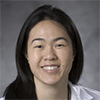More than 200 young ophthalmologists turned out for one of several special events for them during APAO 2017, March 1 to 5, in Singapore. The meeting included both learning opportunities unique to the region and useful tips for new ophthalmologists, no matter where you practice.
Marcus Ang, MBBS, a member of the 2016-2017 APAO Leadership Development Program class, organized several events to foster relationships among YOs and help them get further training. In addition to two popular and well-attended social events, he also organized an award program to help promising young ophthalmologists enroll in observerships and attend other conferences in the region. With the help of each APAO local society, more than 50 YOs from 20 different countries applied.
Dr. Ang said he hopes to see continued collaboration between the Academy and the APAO as well as stronger relationships between YO committees and LDP participants.
Tan Do, who presented during an APAO 2017 symposium for YOs said relationships like these could help foster more unified training systems in the region. Dr. Do heads the glaucoma department at the Viet Nam National Institute of Ophthalmology.
In a presentation on ophthalmologist training in Vietnam, Dr. Do described the variance in training and confusion this causes for patients. Because French, Russian and other influences have all shaped medical training in Vietnam, the path to becoming an eye care provider can range from months to years, depending on educational background and the desired degree.
Dr. Do’s presentation was one of several great talks at the APAO 2017 YO Symposium on March 3, which covered everything from becoming a clinician scientist to getting published.
Here are our favorite tips from the session.
1. Clearly Define Your Aims for Journal Submissions
How can you set yourself up to get published? Write in clear and precise language and have a well-defined purpose, said Monisha Nongpiur, MD, MBBS, during her talk, “Tips on Publishing in Peer-reviewed Journals.” Dr. Nongpiur, a clinician-scientist at Singapore Eye Research Institute, said it’s also important that your mastery of the literature is up to par with both the journal reviewers and your peers.
2. Watch Expert-Performed Surgeries – Then Visualize Yourself Doing the Same
What steps can you take during training and your early career to master surgery? Begin by first deconstructing the surgery and breaking the procedure down into its most basic components, said Tarun Arora, MD, DNB, FICO. With this basic understanding at hand, be sure to log as many hours as possible observing the approaches of expert surgeons. Then you’ll be able to better visualize yourself actually performing the surgery in preparation for the real deal.
The final step to achieve surgical mastery? Down the road, don’t forget to pass on the skills you’ve learned to the next generation.
3. Seek Reciprocal Mentorship Relationships
During your career, you will move back and forth between the role of the mentee and the mentor. Efren Laxamana, MD, PhD, of the Philippines said this mentee/mentor relationship should be both reciprocal and collaborative. And because mentoring is a long-term process, he said each party should share mutual responsibility and accountability to help the mentee work towards clearly defined goals.
4. Take Advantage of Leadership Training
The session also covered ways to improve your surgical exposure, research experience and leadership skills. Seng Kheong Fang, MBBS, MS Ophthal, AM, chair of the APAO YO committee, announced that the association now offers an International Fellowship Program for trainees from any of the APAO member countries.
To apply, you must be under the age of 40 and have completed basic residency training in ophthalmology. Upon completion, you’ll be able to take what you’ve learned back to your native country and participate in blindness-prevention programs whenever appropriate.
APAO also offers a Leadership Development Program, directed by Cathy Green, MBChB. The program solicits nominations annually from national member societies in the region.
5. Stay Connected to Colleagues Around the World
Training programs might vary around the world, but many of the steps to a successful career are the same no matter where you practice. In today’s age of connectivity, anyone with an Internet connection can pull up resources like Eyetube or YouTube and familiarize themselves with new procedures thousands of miles away before implementing them in their own practice. And through Web forums like Google Hangouts, we can easily exchange ideas with colleagues around the world in real time.
Editor’s note:
Check out these additional Academy resources for young ophthalmologists.
* * *


 About the authors: Jeff Pettey, MD, is an assistant professor and director of education at the Moran Eye Center at the University of Utah.
About the authors: Jeff Pettey, MD, is an assistant professor and director of education at the Moran Eye Center at the University of Utah.
S. Grace Prakalapakorn, MD, MPH, is an assistant professor of ophthalmology and pediatrics at Duke University in Durham, NC. She completed her residency training at Emory University and a pediatric ophthalmology and strabismus fellowship at Duke University.
Royce Chen, MD, practices in New York and was the co-chair of the APAO 2017 YO Symposium.
Dr. Pettey serves on the Academy Young Ophthalmologist Committee; Drs. Chen and Prakalapakorn serve on the YO International Subcommittee.